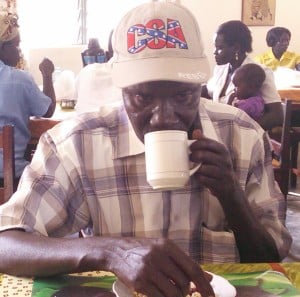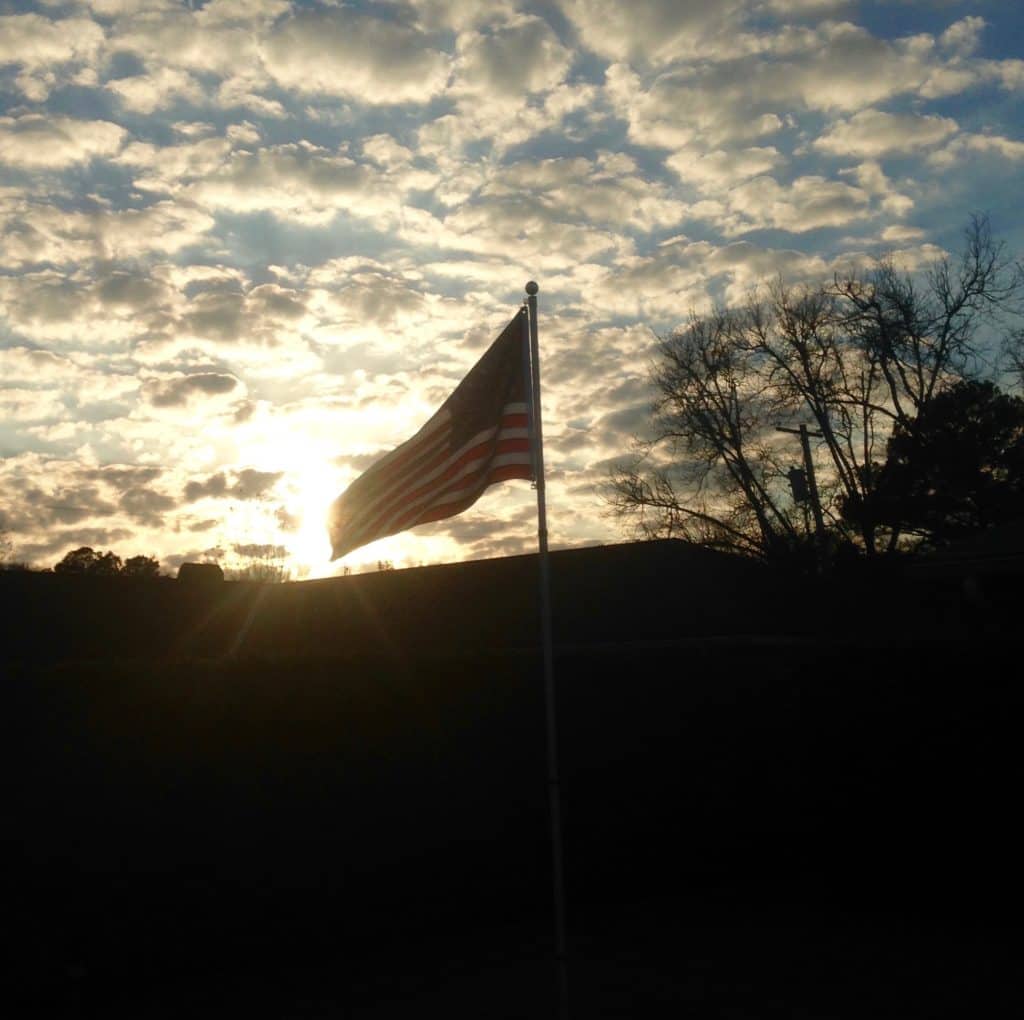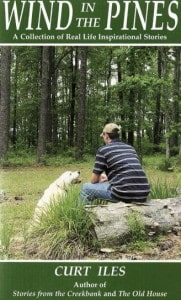“A Tale of Two Caps” is from our third short story collection, Wind in the Pines.
With our current American conversation over a divided nation, I was reminded of this story. It’s a timely reminder about the strengths of our country and the challenges we have.
I grew up in a home where my parents never judged people by the color of their skin or the money in their bank account. My dad and mom taught us, by word and example, to deal with all people with respect.
Even though I grew up in an all-white community, my parents taught us how to respect others. I never heard my parents use any racial slur.
When the first black family came to our school, I sat by one of them, Wilford Goodley, at lunch and received taunts from prejudiced classmates. It only made me more determined.
The story below, A Tale of Two Caps, shares about a racially divisive issue we dealt with at Dry Creek Camp. It’s a good time to pull out this story about dealing with an old problem.
It’s a story about understanding and flexibility.
It’s about putting yourself in another man’s shoes, or in the case of this story, another man’s cap.

View a stirring short message about the Confederate flag by Dr. James Merritt of Atlanta, Georgia.
A Tale of Two Caps
Dry Creek Baptist Camp
Circa 2000
Years as a high school administrator taught me to “smell trouble.”
That was the case on a night of summer youth camp.
The evening service had just ended and campers roamed the area around the snack shack and main road.
There was a large group of about twenty-five campers near the road.
I could tell something was up.
Tension could be felt just walking past this group.
I walked over, “Hey guys, what’s going?”
The crowd parted slightly but no one was willing to tell me anything.
Then I saw “Randall” and figured he was the person everyone was gathered around.
I’ve always liked Randall. I had gotten to know him better the previous summer when we made a late night emergency room visit together.
Randall is what I call a “man-child.” Although only fourteen at the time, he was a big boy– about six-foot-two and a good 250 pounds.
He had the look and size of a high school football lineman.
I pulled him to the side and said, “Now Randall, I know something is going on. Tell me what the trouble is.”
He hesitated. “Brother Curt, I’ve had trouble with some of those boys in cabin 7 and they won’t leave me alone.”
Looking at Randall and then thinking of what groups were in cabin 7, I knew what the trouble was probably about.
Randall was wearing a cap with a Confederate flag on it.
One of our groups in cabin 7 was an inner city youth group from the Alexandria area. This group, which had had a great time this week, was composed entirely of black teens.
I turned to Randall, “Hey, let’s go over here where we can talk.”
I asked him to take off his cap and put it in his pocket. “Randall, does this trouble have anything to do with your cap?”
He mumbled a unconvincing denial.
I sat him in one of our outdoor pavilions. “You wait here.”
I walked to Cabin 7. The campers were milling around on the porch.
I tried to think of how to defuse this situation. That was the exact moment when I spotted the solution to this problem: his name was Ty.
He was the oldest and tallest camper from this inner city group. I’d spoken to him several times this week and liked his quiet nature and shy smile. I’d watched him on the basketball court and the old coach in me recognized skill and grace.
I called Ty over. “Could you help me out?”
Ty looked at me suspiciously as we walked away.
“There’s a problem I could us your help on.”
He cautiously said that he would try, but still seemed non-committal about getting involved.
Ty was also wearing a cap, but it sure wasn’t a rebel cap. It was a thin black nylon stocking cap popular among many black teens.
We walked over to Randall under the pavilion,
I looked at both boys and their caps – Ty’s black cap on his head and Randall’s confederate cap sticking out of his back pocket.
There was a wide chasm that these two caps represented and I knew my work was cut out for me.
We sat down and I introduced the boys to each other by name. They’d spent most of this day glaring at each other.
Now they were no longer nameless but instead were sitting by each other in the darkness on an old church pew.
I turned to Ty, “Does Randall’s hat bother you?”
He stared off into the darkness. “Well it doesn’t bother me too much, but there are some of the guys in our group are upset by him wearing it.”
I asked Randall if he knew why this rebel flag cap bothered these guys from Alexandria.
He kind of hemmed and hawed before shrugging, “Well, I just don’t think it ought to bother those guys.”
I shared with him how the same flag that meant freedom and Southern pride to him meant something completely different to a black man.
To them it was a symbol of slavery, oppression, and prejudice.
With that I switched on my flashlight and turned to I Corinthians 8 in my pocket Bible.
In this famous passage the Apostle Paul addresses the problem in Corinth of eating meat that had been sacrificed to idols.
Paul clearly stated that the actual eating of the meat was in no ways a sin, but he added a passage of wisdom that is still a good rule of thumb two millennia later.
In verse thirteen, he states,
“Therefore if what I eat causes my brother to fall into sin, I will never eat meat again, so that I will not cause him to fall.”
Two chapters later Paul adds,
“So whether you eat or drink or whatever you do, do it all for the glory of God. Do not cause anyone to stumble, whether Jews, Greeks, or the church of God.”
I turned to Randall and asked, “Do you see any correlation between your rebel hat and this passage in Corinthians?”
Reluctantly he agreed with Paul’s wisdom on not being a stumbling block with our actions.
I told Randall of what God had done in my life on this same issue.
I am a true Son of the South.
My great great great grandfather, the first in our line to settle in Dry Creek, joined the Confederate army and later died near Opelousas. Died of typhoid fever before he ever got to take a shot in anger at a Yankee.
All of my life I’d proudly displayed the stars and bars. Then about ten years ago this changed when the realization came that this same flag, which I took such pride in, offended my black friends.
Sitting there in the dark with these two boys, I shared how it took several years to make this decision: I made a personal pledge not to display the rebel flag out of respect for others who might be offended.
No flag or symbol is more important than people.
I asked Randall, “I’d appreciate you not wearing that cap again at Dry Creek Camp.” I put my hand out. “I’d like to take it and keep it for you until the end of the week.”
Randall sat quietly for a few moments and said, “If you’ll let me keep it, I promise it will not be seen or worn again.”
I told him that he needed to promise that to Ty, not me. He reached out his big hand and shook Ty’s hand.
Randall turned and pointed at Ty. “There is one thing about those guys that bothers me.”
Had I been closer I would have kicked Randall in the shin.
He continued, “It bothers us that we can’t wear our hats in the Tabernacle, but these guys can wear their stocking caps.”
I turned to Ty, “Randall has a good point. Could you take care of that for me?”
Ty nodded. “No problem. I’ll take care of it.”
The three of us stood. I put an arm around each young man and prayed for them and their friends.
I share the tale of the two caps not to make a political or racial statement, but to remind myself that no flag, symbol, or statement, is more important than the feelings of another person.
If I’m living right and have the right attitude, I’ll be careful not to insist on my own rights but think about the other fellow.
Randall and Ty both had a good week for the rest of camp.
The two caps weren’t seen again.
The heat from this situation was cooled simply by two young men looking into each other’s eyes, shaking hands, and having a willingness to look out for someone else’s best interests.
May the same be said of each of us . . .
Whatever your thoughts on this, I’d love to hear them.
Post Contact Form
This goes at the bottom of some posts

Three years away from this flag helped me love and appreciate what it stands for even more.
This story is from my third book of short stories, Wind in the Pines. To learn more, visit http://www.creekbank.net
 Creekbank Stories Curt Iles, Storyteller
Creekbank Stories Curt Iles, Storyteller



I like enjoyed this story very much.
I like reading all of your stories. Glenda Powell